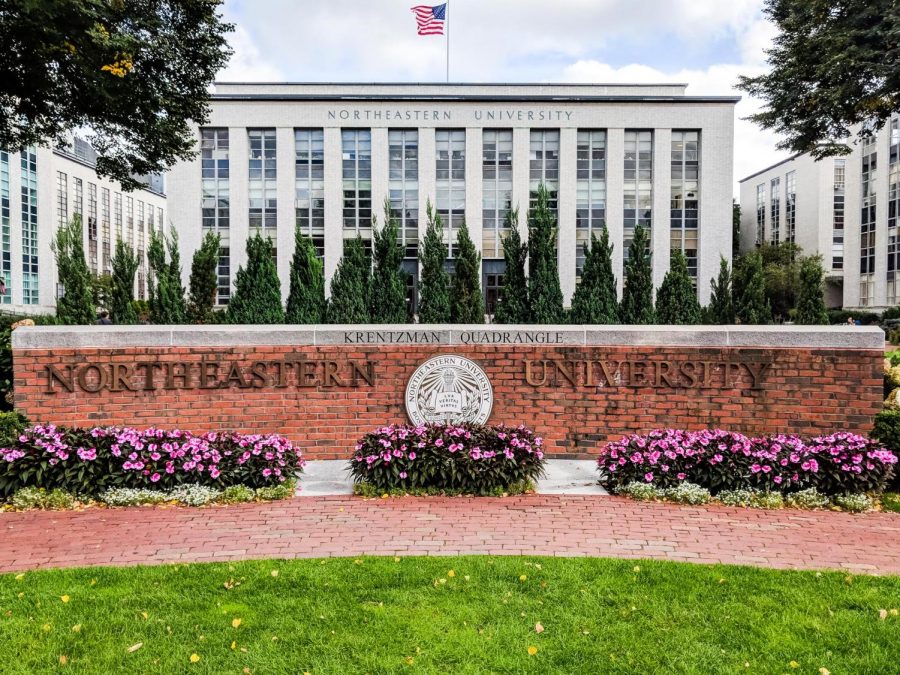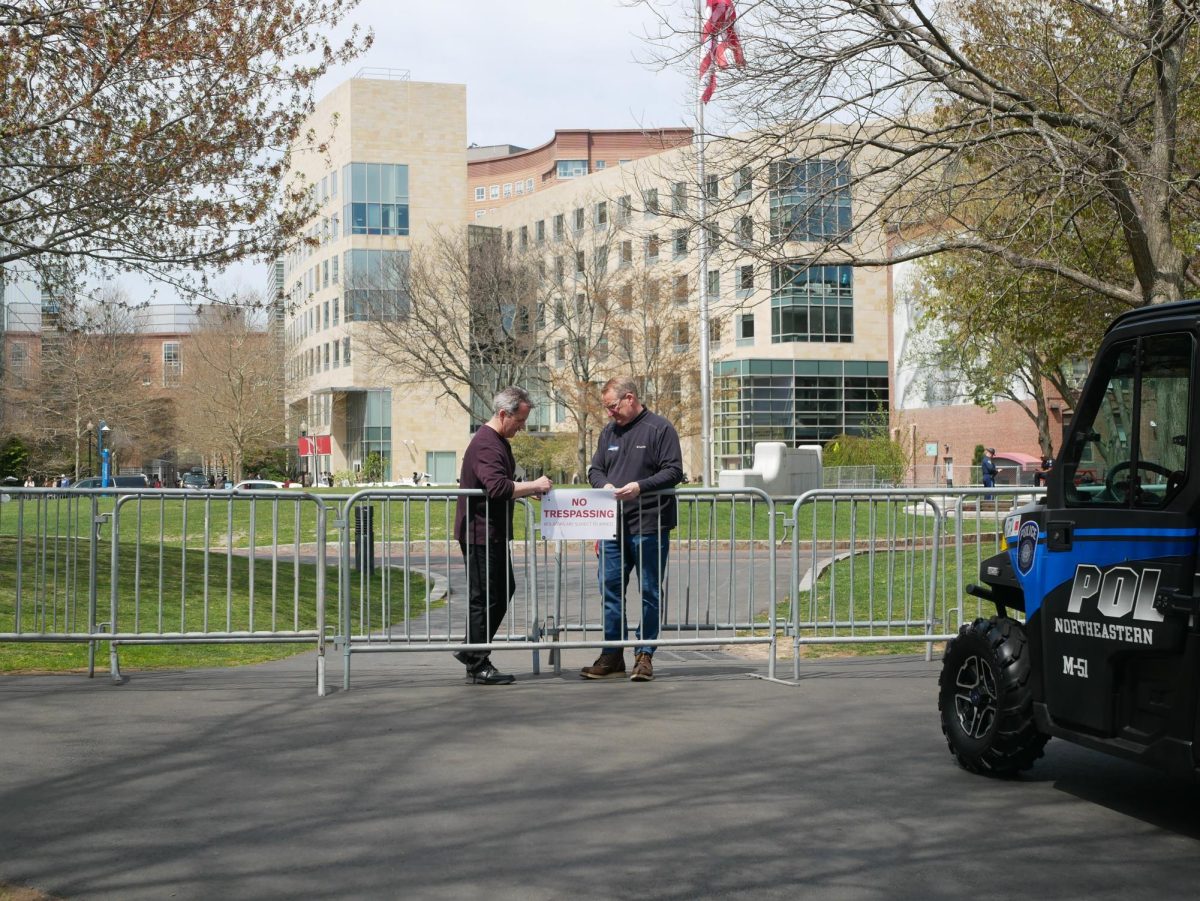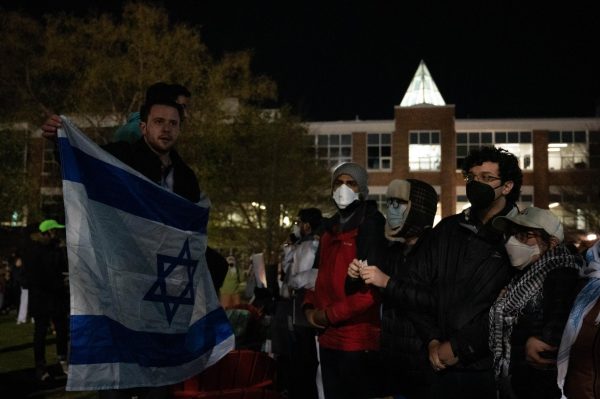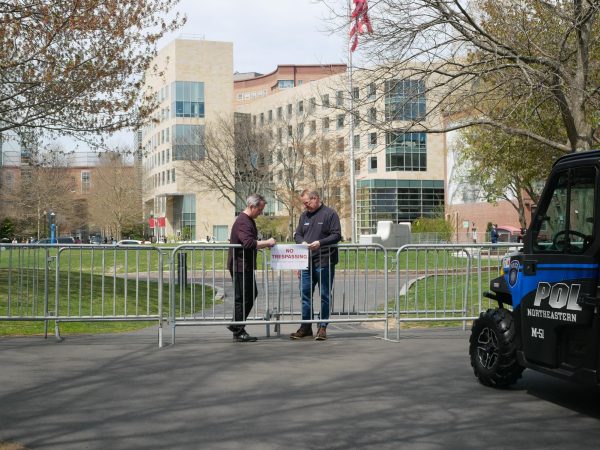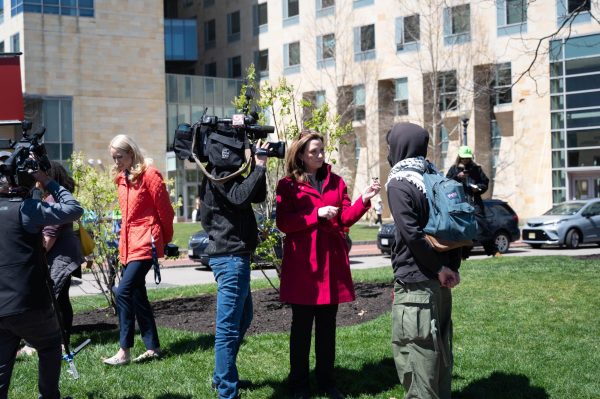Students weigh travel risks as Thanksgiving approaches and cases soar nationwide
Not only do students risk spreading COVID-19 to their hometowns, but following Thanksgiving break, an influx of people may return to Boston with the virus after catching it at home.
October 30, 2020
Later this month, thousands of students, faculty and staff will likely leave the relatively controlled ecosystem of Northeastern for the Thanksgiving holiday. Some will travel across state lines; some will get on airplanes. Many will socialize indoors with people they don’t see routinely. This semester, Thanksgiving presents Northeastern with one of its biggest challenges yet.
“I think this is something we have to figure out how to do properly,” said Michael Mina, a Harvard epidemiologist, on a call with reporters in October. “I think people are going to go home, they’re going to have to see their family. This is just a part of being human … I think it can be done generally safely, but I think it will lead to outbreaks, and that’s unfortunate.”
The holiday is approaching as COVID-19 cases are rising in nearly every part of the country. Massachusetts has recorded more than 1,000 daily cases numerous times recently, and its infection rate and hospitalizations have crept up. The country has seen its average daily cases exceed 70,000, with many regions seeing the worst surges to date.
Not only do students risk spreading COVID-19 to their hometowns, but following Thanksgiving break, an influx of people may return to Boston with the virus after catching it at home.
Many colleges across the country, including Boston University, are telling students who travel home for Thanksgiving not to return to campus after the holiday to cut down on the risk of transmission. Northeastern, though, is welcoming students back to campus, though they will need to undergo the same testing and quarantine procedures that were required of students arriving at the beginning of the semester.
Mina said Northeastern’s decision to allow students to travel across the country and back during a viral surge is not necessarily a bad one, and it reflects the fact that Northeastern has greater testing capabilities than schools that have enacted stricter policies.
“The reason these schools and so many institutions have employed very high throughput, high capacity, frequent testing is to account for situations like this,” Mina said. “Do I think it will necessarily work? I’m not sure, but do I think that the testing so far has suggested that it is possible to keep outbreaks at bay through frequent testing.”
Northeastern is not considering altering its travel policy in light of the worsening condition of the pandemic in the United States.
“We have clear testing protocols for students who travel outside the region and return to campus. It doesn’t matter whether the purpose of the travel is for Thanksgiving or another reason,” said Michael Armini, senior vice president of external affairs. “Many of the universities placing great emphasis on Thanksgiving travel don’t have Northeastern’s testing program.”
NU’s existing guidance also urges anyone travelling to wear masks and minimize contact with others.
Mina said that colleges in Northeastern’s position should consider tightening mitigation measures after the holiday in anticipation of a greater number of infections. “Maybe they could test every two days for the first week and a half after somebody is back,” he said.
Dr. Anthony Fauci, the country’s leading infectious disease expert, said in October that he and his wife won’t have Thanksgiving with their kids this year.
“We would love for them to come home for Thanksgiving,” Fauci told CNBC. “They have said themselves, ‘Dad, you know you’re a young, vigorous guy, but you’re 79 years old.’”
Nicole Rich, a fourth-year English major, is following Fauci’s lead and staying in Boston instead of going to see her family in New York. She said she was worried about potentially transmitting the virus to her grandmother, and she was also concerned about receiving the virus from her younger cousins, who attend public school in person.
“I know maybe it’s weird to say that I feel safer on a huge college campus,” Rich said. “But still … kids are germy.”
She said she will spend Thanksgiving with her boyfriend in the city, and her parents are likely going to celebrate by themselves too.
Matthew Ostheimer, a fifth-year business administration major, was initially unsure if he would go home for Thanksgiving, but eventually he decided to spend the holiday with his family, north of San Francisco. He said his family’s holiday will look different than usual, though. His grandparents won’t be involved, and the gathering will be limited to immediate family only.
He said he made sure to book nonstop flights to cut down on the risk of infection during travel and will upgrade his usual mask to an N95 for the trip.
“I’m not super worried about [the travel], I often feel sometimes more worried being in Massachusetts, like walking through a grocery store where someone’s refusing to put on a mask,” Ostheimer said.
Mina predicted that, even if travelers take precautions like masking, distancing and testing, the holidays will lead to an increase in cases.
“We actually see that a lot, from measles and other infections where we know that when people go home and then go and start school again, this is the time when outbreaks happen,” Mina said. “People have to be understanding of the risks that they’re taking.”


